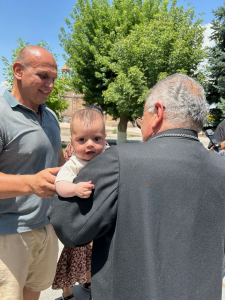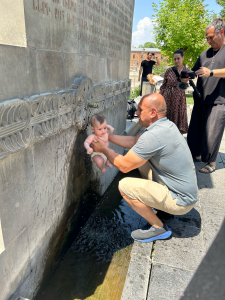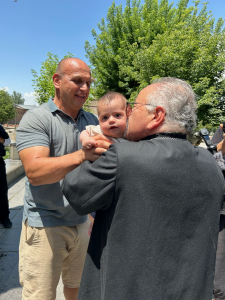Government
Armodoxy for Today: Government
As I was leaving church service on Sunday, a man approached me and asked for thoughts regarding an incident taking place in Armenia – but it could be anywhere in our world – where members of the clergy were protesting the actions of the government. He then rattled off the first two verses of Roman’s 13, proclaiming to me, “Let every soul be subject to the governing authorities. For there is no authority except from God, and the authorities that exist are appointed by God. Therefore whoever resists the authority resists the ordinance of God, and those who resist will bring judgment on themselves.” And then to be sure that I got it, he let me know that these were the words of the St. Paul the Apostle. And even more, in case I didn’t know who St. Paul might be, he gave me the bottom line of his question: “It’s in the Bible that we should obey the government! How can a clergyman,” he said, “Go against the government?”
Like too many people, he had a formula for religious questions – short, quick and with no investment of time or reason. He was waiting for an answer in the doorway of the church, a quick yes or no, a black and white with no room for a grey, and all before entering his car, parked a few feet away. I gave him what he was looking for, and a little of what I wanted, namely for him to think beyond the words. I responded that there were many Christians, some even clergymen, who went against Hitler’s orders to kill Jews. And little closer to home, I challenged him to think about the 1915 government plan by the Ottoman Turks to exterminate Armenians. I asked him, “Would you say that those people who did not obey that order were wrong? I’m thankful that they did not follow the government order!” He looked at me with almost disgust and answered quickly, “That’s completely different!” and walked away unsatisfied that there might be an answer that goes against his understanding of Scripture.
This week marks the anniversary of independence for the United States of America. Two-and-a-half centuries ago, a rebellion took place against a government and independence was declared in a document which spoke of a Creator and unalienable rights. Yet, there are distinct boundaries and separation of Church and State in the Constitution of the United States. Since the time of independence, the balance between government and religion has been carefully maintained, even against a backdrop of a world where the lines between the sacred and the profane have been blurred.
In celebration of the Independence of the oldest continuous democracy in the world, the United States, this week we’ll take a look at church and state, from Armenian theologians and thinkers as well as our view of the world in the 21st century, where tensions flare along political and religious perspectives. If you’re willing to invest a bit more time than a walk from your front door to the car, join me for this journey on Armodoxy for Today.
Let us pray, from the Armenian Divine Liturgy, O Lord, who blesses those who bless you and keeps holy those who put their trust in You, save your people and bless their inheritance, guard the fullness of Your Church. Amen.
Cover photo: Government swings and slides, 1993 Fr. Vazken

 Did you ever think we’d talk about a schmoozer or the art of schmoozing as a daily message?
Did you ever think we’d talk about a schmoozer or the art of schmoozing as a daily message? 




